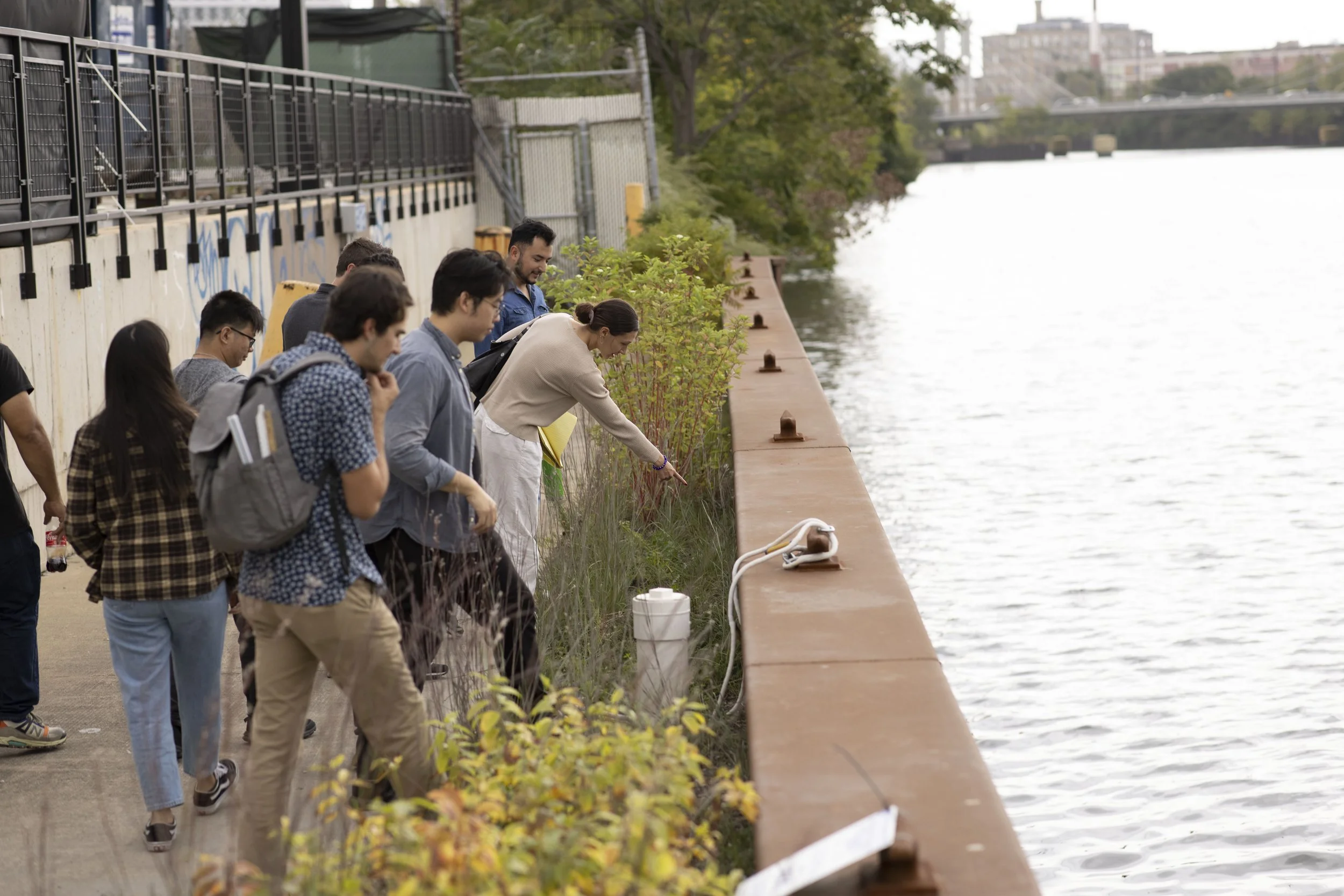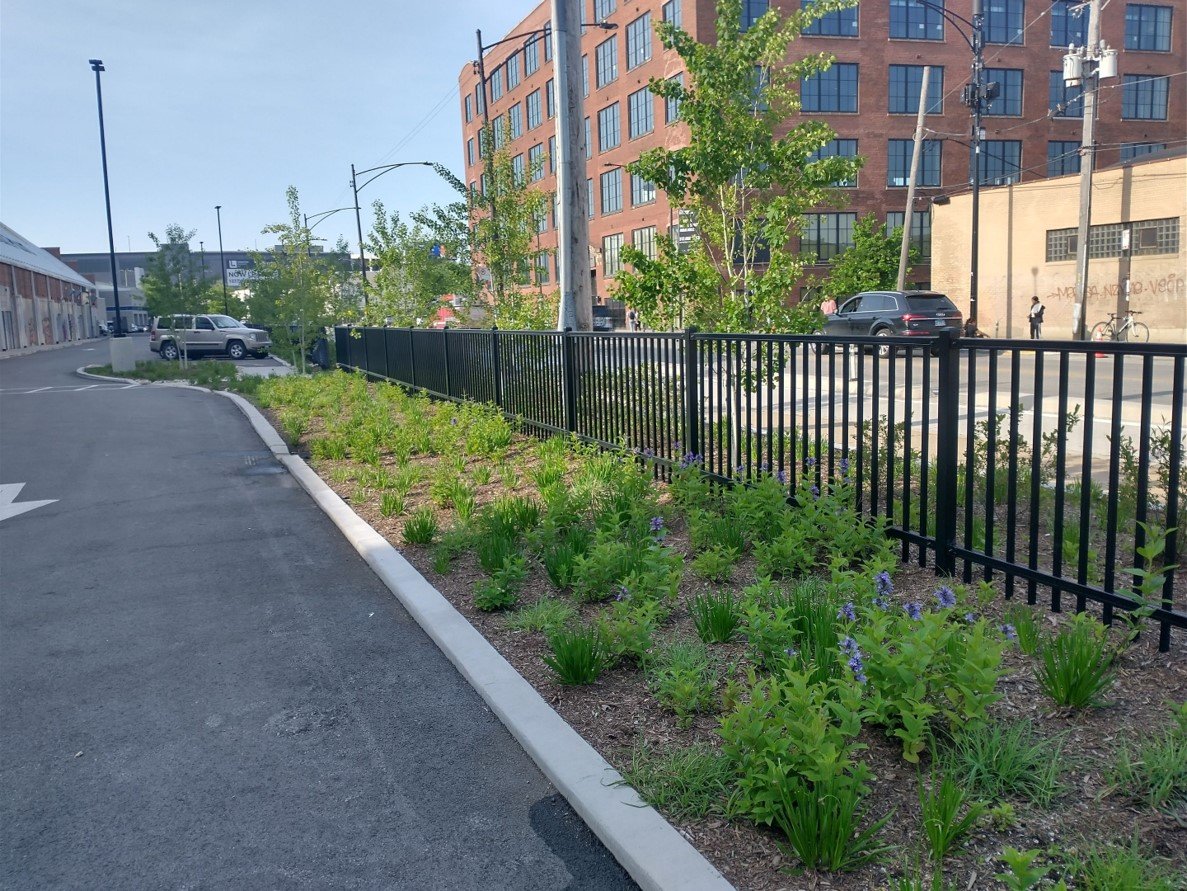The Salt Shed
The iconic Morton Salt warehouse has been a recognizable landmark for Chicago residents and visitors for nearly a century. Unbeknownst to the average concertgoer, The Salt Shed’s planting soils are entirely comprised of Omni Infinity Media, which proved to be the essential solution to economically redevelop this brownfield and manage the 4-acre site’s stormwater.
Uses of Omni Infinity Media
Stormwater Management & Brownfield Redevelopment
Key Takeaways
Significant project cost savings
No hauling off of situ contaminated soils
All required stormwater volume via bioinfiltration
Easily provided TACO Tier 1 compliant test results
All of the site’s stormwater runoff is directed to bioinfiltration areas comprised of Omni Infinity Media before discharging from the site. While typical prepared soil has 25% pore space, Omni Infinity Media has 77.7-85.0% porosity. By using Omni Infinity Media, there was no need for any disturbance of the existing cap or the underlying contaminated soils.
On the site’s Elston Ave side, the new parking area appears to have typical landscape islands. The curb cut directs water to drain into the islands, rather than into the asphalt. Rather than typical prepared soil, the landscape islands are filled with Omni Infinity Media thereby more than tripling the stormwater volume control of these bioinfiltration areas.
Location
Chicago, IL
Type
Adaptive Reuse
Corporate
Commercial
Public Space
Project Team
R2 Properties
Blue Star Properties
Lamar Johnson Collaborative
V3 Companies
Omni Workshop (now a part of Greenprint Partners)
Morton Salt’s former warehouse moves closer to redevelopment
Chicago’s iconic Morton Salt building poised for redevelopment
Morton Salt warehouse redevelopment plans include office, entertainment space along Chicago River
Chicago River entertainment, offices planned for Morton Salt redevelopment
Developers want to turn the old Morton Salt warehouse into the “Salt District”











